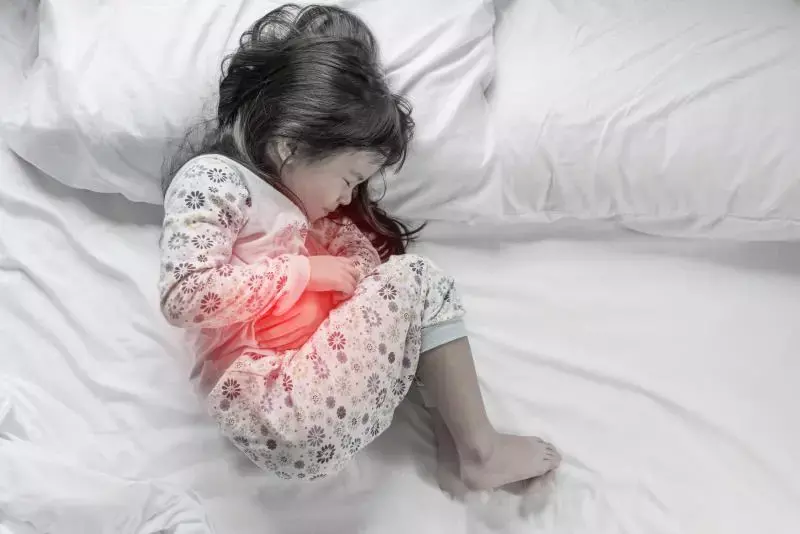- Home
- Medical news & Guidelines
- Anesthesiology
- Cardiology and CTVS
- Critical Care
- Dentistry
- Dermatology
- Diabetes and Endocrinology
- ENT
- Gastroenterology
- Medicine
- Nephrology
- Neurology
- Obstretics-Gynaecology
- Oncology
- Ophthalmology
- Orthopaedics
- Pediatrics-Neonatology
- Psychiatry
- Pulmonology
- Radiology
- Surgery
- Urology
- Laboratory Medicine
- Diet
- Nursing
- Paramedical
- Physiotherapy
- Health news
- Fact Check
- Bone Health Fact Check
- Brain Health Fact Check
- Cancer Related Fact Check
- Child Care Fact Check
- Dental and oral health fact check
- Diabetes and metabolic health fact check
- Diet and Nutrition Fact Check
- Eye and ENT Care Fact Check
- Fitness fact check
- Gut health fact check
- Heart health fact check
- Kidney health fact check
- Medical education fact check
- Men's health fact check
- Respiratory fact check
- Skin and hair care fact check
- Vaccine and Immunization fact check
- Women's health fact check
- AYUSH
- State News
- Andaman and Nicobar Islands
- Andhra Pradesh
- Arunachal Pradesh
- Assam
- Bihar
- Chandigarh
- Chattisgarh
- Dadra and Nagar Haveli
- Daman and Diu
- Delhi
- Goa
- Gujarat
- Haryana
- Himachal Pradesh
- Jammu & Kashmir
- Jharkhand
- Karnataka
- Kerala
- Ladakh
- Lakshadweep
- Madhya Pradesh
- Maharashtra
- Manipur
- Meghalaya
- Mizoram
- Nagaland
- Odisha
- Puducherry
- Punjab
- Rajasthan
- Sikkim
- Tamil Nadu
- Telangana
- Tripura
- Uttar Pradesh
- Uttrakhand
- West Bengal
- Medical Education
- Industry
Pediatric-Onset of IBD Increases Cancer Risk in Later Life: JAMA

Inflammatory bowel disease is associated with an increased risk of several types of cancer, including colon, small bowel, and upper gastrointestinal tract cancers. A recent study suggests that there is a greater than 2-fold increased rate of cancer among patients with pediatric-onset IBD compared with general pediatric populations, due primarily to an increased rate of gastrointestinal cancers. The study findings were published in JAMA Network Open on March 01, 2022.
Although previous studies indicate that the risk of all-cause cancer is higher among those with pediatric-onset IBD compared with individuals without IBD, studies are heterogeneous and limited in size, and the estimates are variable. Furthermore, among children, the incidence of IBD and the risk of cancer have increased in recent years. Therefore, Dr Rahma Elmahdi and his team conducted a study to evaluate the relative rate of cancer among patients with pediatric-onset IBD.
In this study, the researchers examined five population-based studies from North America and Europe, which included more than 19,812 participants with pediatric-onset IBD. They conducted a random-effects model meta-analysis of included studies using the inverse-variance method to assess the relative rate of cancer overall and by IBD subtype, sex, and thiopurine exposure among patients with pediatric-onset IBD. Among these 19, 81 patients, they identified715 cases of cancer.
Key findings of the study:
- In a meta-analysis of pooled relative rate (pRR) estimates the researchers found a 2.4-fold increase in the rate of cancer among patients with pediatric-onset IBD (pRR, 2.46).
- They noted that the pooled relative rates were 2.03 for patients with Crohn's disease and 2.61 for patients with ulcerative colitis.
- They noted that this increased rate is primarily due to an increased rate of the liver (pRR, 55.45), colorectal (pRR, 20.29), and small bowel (pRR, 16.20) cancers.
- They further observed that the incidence rate of cancer among patients with pediatric-onset IBD was reported by 4 studies and ranged from 1.0 to 3.3 cases per 1000 person-years.
The authors concluded, "This meta-analysis of unselected, population-based studies showed a greater than 2-fold increased rate of cancer among patients with pediatric-onset IBD compared with the general pediatric populations, primarily owing to an increased rate of gastrointestinal cancers."
For further information:
Medical Dialogues Bureau consists of a team of passionate medical/scientific writers, led by doctors and healthcare researchers. Our team efforts to bring you updated and timely news about the important happenings of the medical and healthcare sector. Our editorial team can be reached at editorial@medicaldialogues.in.
Dr Kamal Kant Kohli-MBBS, DTCD- a chest specialist with more than 30 years of practice and a flair for writing clinical articles, Dr Kamal Kant Kohli joined Medical Dialogues as a Chief Editor of Medical News. Besides writing articles, as an editor, he proofreads and verifies all the medical content published on Medical Dialogues including those coming from journals, studies,medical conferences,guidelines etc. Email: drkohli@medicaldialogues.in. Contact no. 011-43720751


